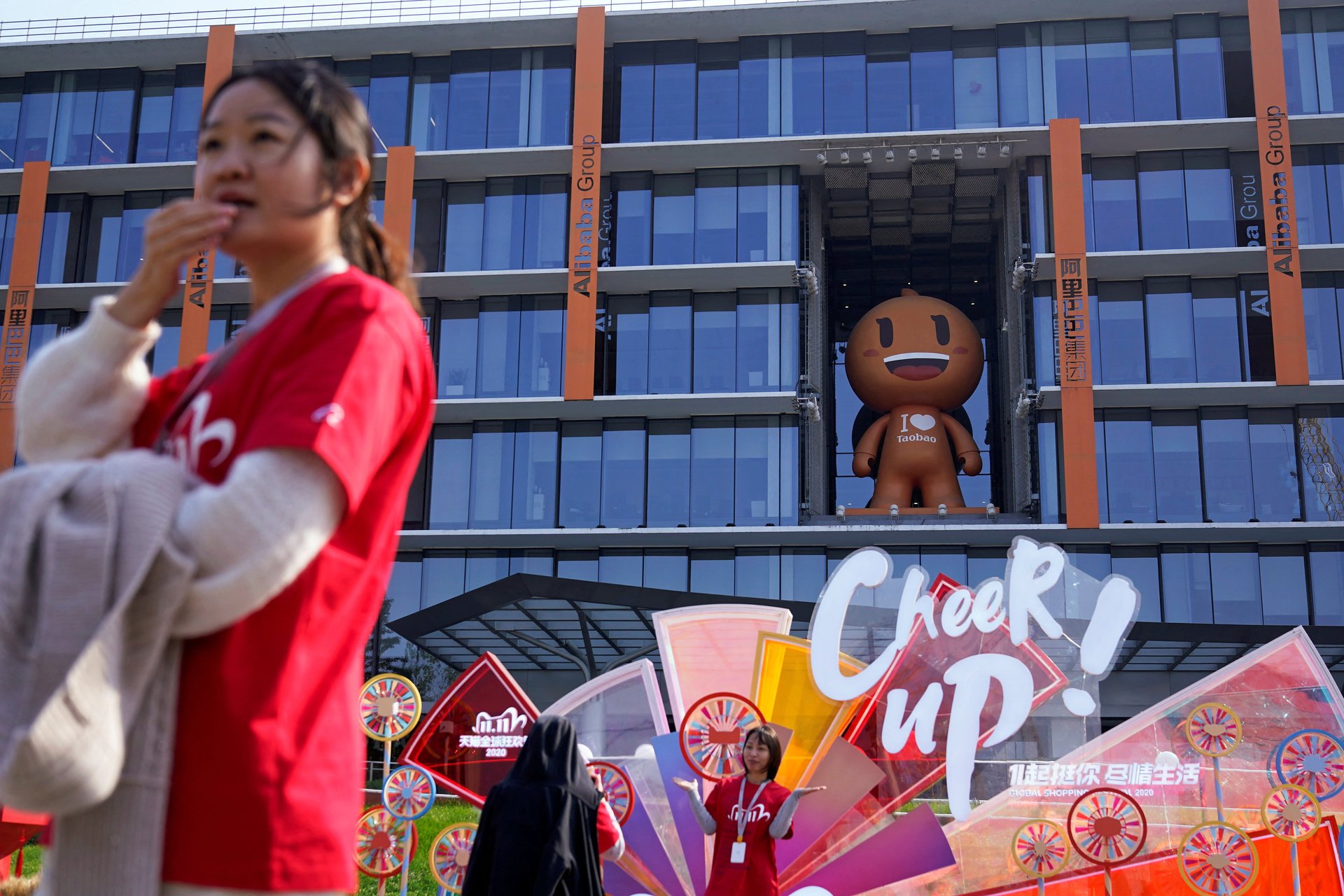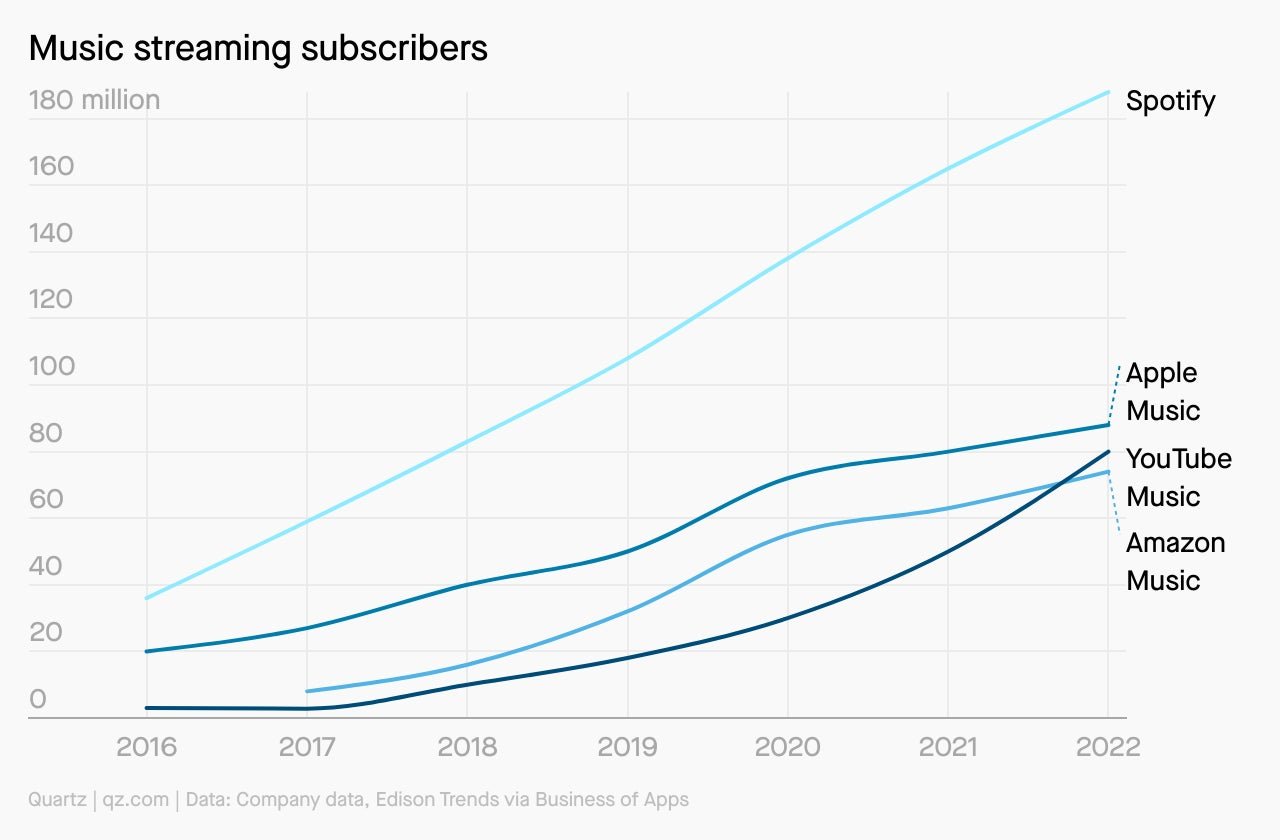🌏 This one’s for all the Singles
Plus: Landing space drugs in the US is hard.

Good morning, Quartz readers!
Suggested Reading
Here’s what you need to know
Chinese e-commerce giants are betting on presales for Singles Day. The invented shopping holiday isn’t until Nov. 11, but JD.com and Alibaba are banking that early low prices will woo shoppers.
Related Content
Nvidia is coming for Intel’s PC processors. The US chip maker is working with UK-based semiconductor designer Arm on processors that could run Microsoft software and go on sale as soon as 2025.
A British court said that Nigeria won’t have to pay $11 billion for a failed gas project. A contract awarded by a British Virgin Islands-based firm was found to be fraudulent—and it’s a huge sigh of relief for Nigeria’s ailing economy.
Iceland’s prime minister is going on strike today. Katrín Jakobsdóttir will join tens of thousands of women and nonbinary people who are walking off the job to protest gender wage gaps and violence.
Landing space drugs in the US is hard
What could be trickier than launching a drug manufacturing operation into space? Well, it turns out, getting those drugs back to Earth.
Los Angeles startup Varda Space Industries successfully got its prototype of an automated factory that makes an HIV/AIDS drug called ritonavir into orbit, but the US Federal Aviation Administration hasn’t cleared the capsule for landing yet.
It all demonstrates how regulations have yet to catch up with space business. And if the US can’t get there in time to receive Varda’s payload, Australia might be waiting with open arms.
Spotify’s dominance isn’t turning up the profit

Spotify may be the undisputed market leader in music streaming, but analysts aren’t expecting the still unprofitable Swedish company to have anything to dance about during its income report today.
“A valuation reality check could be on the cards—to the downside—as the company’s focus shifts to ad revenue after years of failed attempts to break through to profitability with its subscription business,” predicts Dilantha De Silva, a former buy-side analyst who runs the investment research group Beat Billions. And that doesn’t even take into account increased competition from Big Tech.
One big number: $250 billion
Annual revenue that would be generated if the world’s billionaires were taxed 2%
It’s no surprise that the place with the most billionaires—which would, in turn, lead to the most revenue each year ($72.3 billion)—is North America, a place that 835 billionaires call home. But how do the world’s other region’s stack up? Quartz’s Ananya Bhattacharya has them all charted.
Surprising discoveries
There’s now a map of all the roads less traveled in the US. Anyone in the market for a lonely, desolate trip?
Crocs cowboy boots are here. The people asked, and the people received.
Dogs really are humans’ best friends. Owners of canine pals care more about them than cat parents do about their felines, according to a study of 17,000 people.
Did you call the Uber for the hot air balloon yet? Because your ride in Turkey’s iconic Cappadocia region is waiting for you.
Global forest loss peaked in the 1980s. But there’s a lot of variance in where trees are being knocked down and where they’re still standing tall.
Did you know we have two premium weekend emails, too? One gives you analysis on the week’s news, and one provides the best reads from Quartz and elsewhere to get your week started right. You can get those by becoming a member—and take 20% off!
Our best wishes for a productive day. Send any news, comments, a playlist for lonely travelers, and Converse cowboy boots to [email protected]. Today’s Daily Brief was brought to you by Morgan Haefner.